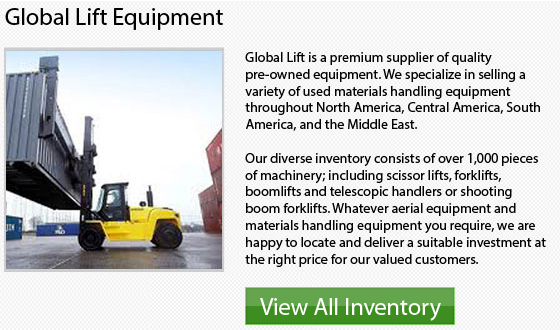
The majority of forklifts and lift trucks are available with many common safety features, like seat belts on sit-down vehicles. Stand-up vehicles would almost always have dead-man petals. Furthermore, certain manufacturers are providing extra features like speed controls which could reduce the overall speed based on steering angle and load height. For more information, there are numerous available articles on Lift Truck Safety and Loading Dock Safety.
Service and Support
A big part of lift truck selection is to make certain that you maintain access to high levels of service and support. Every year, there seems to be a wider array of new players in the forklift industry. Even though they provide a decent lift truck design and a good price, if they do not offer the local or regional service and support infrastructure, you have to be prepared for significant aggravation when the forklift breaks. Each type of lift truck goes down at some point and service, parts and general questions must be addressed at some point.
You will usually want to have a nearby dealer or repair shop with a full supply of the parts you require for your particular model. Be sure to visit the repair shop or the dealership and take a look at their parts room in order to try to know how many parts they store. Make sure to ask that if they do not have the component you require, where would it come from? With a bit of luck, the answer will be from a local or regional distribution facility.
Try to get some additional ideas on the units currently utilized in your vicinity. This is doubly vital for specialty trucks such as turret trucks. If there are only a small amount of trucks in use in their service area that you should assume they may not be stocking many if any parts for them. Also, they may have very little overall experience in servicing that model as well.